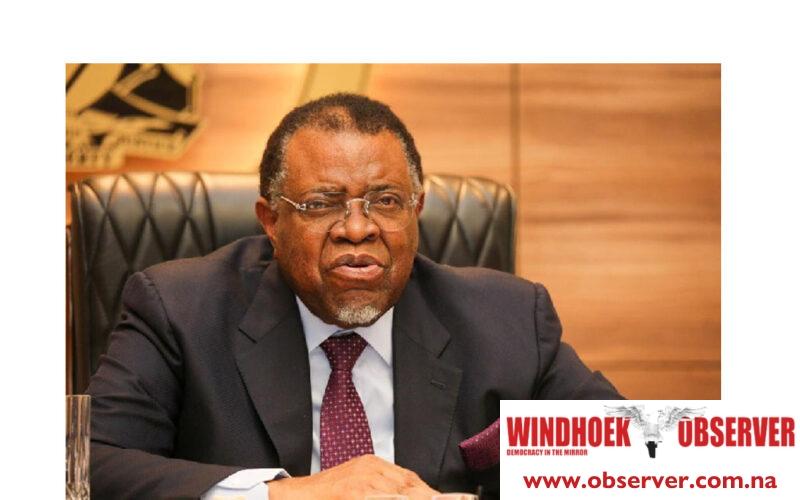Niël Terblanché
President Hage Geingob along with President Mokgweetsi Masisi of Botswana, met with key international figures, including UN Deputy Secretary-General, Amina Mohammed, and US Ambassador to the United Nations, Linda Thomas-Greenfield, to deliberate on fundamental issues pertaining to Africa’s advancement during a meeting at the Apollo Theatre in New York.
President Geingob, in his address, emphasised the urgency for the African Diaspora to spearhead the transformation of Africa’s portrayal in global domains, insisting that unjust criticisms and attacks on the continent must be contested.
“Africa is misrepresented and attacked, but you don’t say anything. Rather, you join those who are trying to break Africa down,” he said.
The discourse in New York followed President Geingob’s participation in the UN General Assembly (UNGA), where he rallied global leaders to champion initiatives addressing inequality, equitable transitions to green energy, and the consolidation of peace.
The President highlighted the necessity of unity in forging a world marked by justice, equity, and widespread opportunities.
While participating in the UNGA, Geingob expressed his reservations about Namibia’s designation as an upper middle-income country, contending that such a classification, rooted in per capita income metrics, overlooks the longstanding disparities induced by colonial injustices.
He called for a recalibration of such economic assessments to encompass historical contexts and existing inequities.
During a speech at the UNGA, the President highlighted Namibia’s innovative strides, referencing the 2019 Development Finance Assessment Report and the Integrated National Financing Framework.
These mechanisms, he noted, have unearthed distinctive opportunities such as green hydrogen and underwater kelp cultivation, enabling Namibia to progress in Sustainable Development Goals (SDGs) and combat climate change.
By leveraging inventive financial instruments like green and sustainability bonds, and fostering public-private partnerships, Namibia has mobilized over $1.2 billion in financing commitments by 2023.
The President discussed the essence of domestic resource mobilization and its alignment with Namibia’s developmental imperatives.
He advocated for international financing entities, including the World Bank, to diversify their lending portfolios to include a wider spectrum of income categories.
“The call for the reform of the international financial architecture is a call to broaden opportunities to support development,” President Geingob stated, reiterating the indispensable role of stable and predictable financing in actualizing developmental visions.
He stressed Namibia’s staunch commitment to the Sustainable Development Goals and multilateralism, praising the United Nations’ critical role in unifying global entities to surmount shared adversities.
“Despite the myriad of challenges confronting us, hope and a commitment to a brighter future should remain undeterred,” he concluded.
During the meeting at the Apollo, the emphasis fell on equitable economic classifications, innovative developmental strategies, and international cooperation reflecting the broader aspirations of many African nations seeking to redefine their narratives and actualize their developmental ambitions in an interconnected world.




